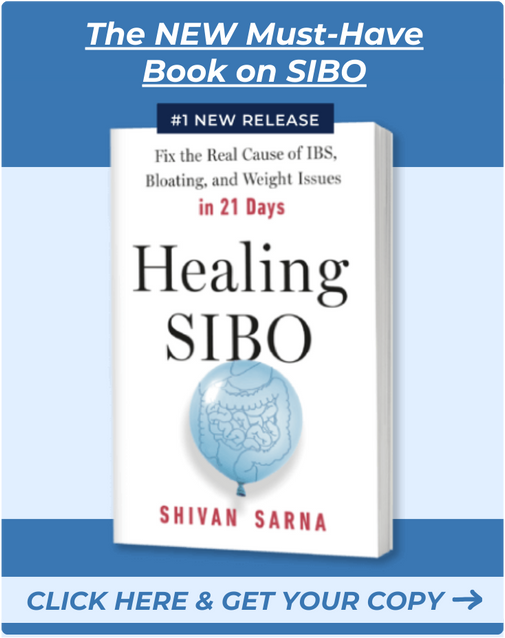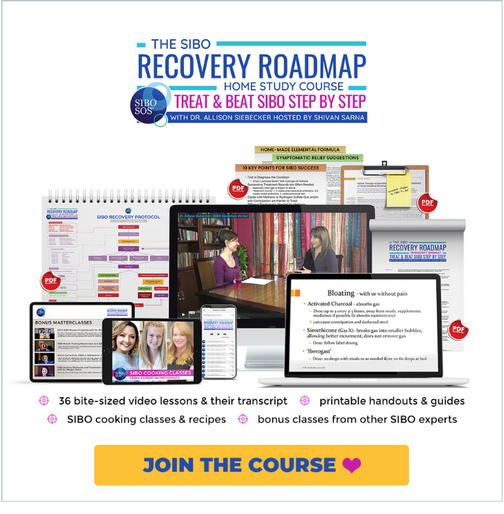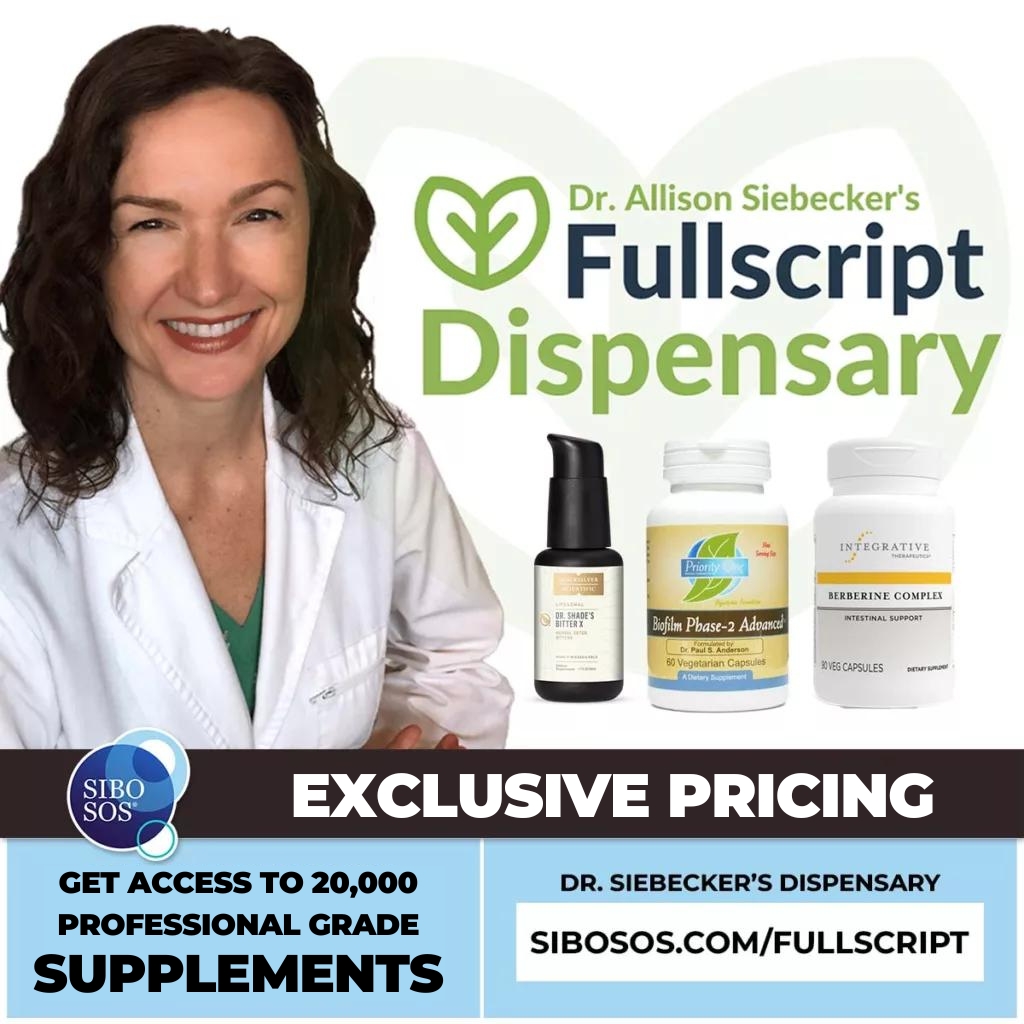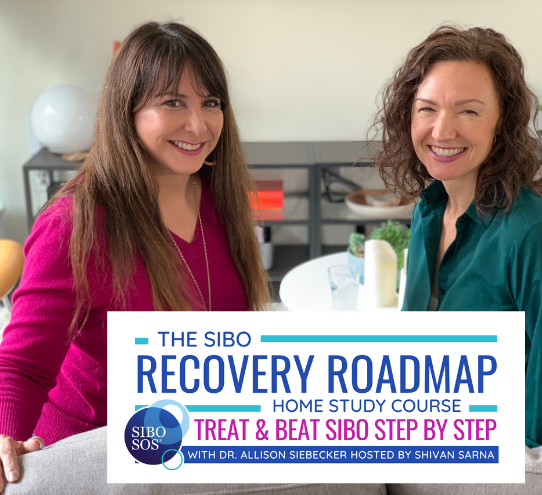The condition behind 80% of IBS diagnosis, Small Intestinal Bacterial Overgrowth, or SIBO for short, can develop at any point in someone’s life. If you’re experiencing symptoms, you may be seeing early signs of SIBO.
It occurs when unwanted bacteria accumulate and begin to grow in the small intestine. This can happen due to surgery, food poisoning, or certain health conditions. These unwanted bacteria can mess up the digestive process and cause hydrogen or methane gas in the small intestine.
To tackle this overgrowth, it’s important to use a two-step approach: symptom management combined with finding and treating the root cause. Learn more about the path to SIBO treatment with the 9-step algorithm we love, the SIBO Recovery Roadmap.
If you think you may have SIBO, continue reading to discover the most common signs of SIBO and see if your symptoms match.
Bloating
The most common symptom of SIBO is intense bloating. As the bacteria in the small intestine “eat” the food passing through your digestive system, they produce methane or hydrogen gas as a byproduct, which can cause severe bloating and feelings of fullness.
Pain
If you experience pain as a SIBO patient, you’re not alone. The gasses produced by the bacteria can lead to the stretching of your intestinal walls, leading to pain. Other SIBO symptoms like constipation, diarrhea, and heartburn can further lead to abdominal discomfort.
Heartburn
SIBO can trigger heartburn, as the bacterial overgrowth in the small intestine causes the release of gasses and byproducts that can relax the lower esophageal sphincter, allowing stomach acid to flow back into the esophagus.
Fatigue/Exhaustion
If you’re sleeping well but still feeling tired, this could be another symptom of SIBO! Fatigue and exhaustion is often linked to a nutrient deficiency, which can be caused by the bacteria in the small intestine as they consume the nutrients meant for you.
Nausea
You may experience nausea with SIBO because the overgrowth of bacteria can produce compounds that irritate the stomach lining, leading to a queasiness and nausea.
Constipation
If you’re dealing with lasting constipation, the excessive bacterial growth in the small intestine may be impeding proper bowel motility by blocking the “Migrating Motor Complex” and hindering the efficient movement of waste through the digestive tract.
Diarrhea
SIBO can lead to diarrhea as the overgrowth of bacteria in the small intestine can disrupt your nutrient absorption or tolerance to certain foods, triggering an imbalance that results in loose stools.
Gas
One of the key signs of SIBO is excessive gas production, caused by the fermentation of undigested food and the release of hydrogen and methane.
However, while these symptoms are uncomfortable and complicated, SIBO comes with a silver lining: it’s both diagnosable and treatable.
Diagnosing it involves a straightforward breath test that can be self-administered at home. This breath test involves drinking a sugar solution and exhaling into test tubes over a span of a few hours. The gas within these tubes is then analyzed, and elevated levels of hydrogen and methane are marked as signs of SIBO.
(Hey- have you asked yourself these questions: do I have SIBO? Why, when, and how should I get tested? What’s the dealing with retesting? Our Ultimate Guide to Testing for SIBO will help you gain clarity around this important topic to navigate the maze of SIBO/IMO testing and create an action plan to resolve your symptoms.
Testing is the first step to seeing recovery and results. You’ll learn the importance of testing and how it can guide your treatment, the 3 ways to be tested for SIBO, what a breath test is, how to choose the right test, do and donts for testing mornings, and how to interpret your results. Get the guide now!)
SIBO SOS® specializes in SIBO treatments, effective diets, the best supplements, and all of the information you need to treat and beat SIBO. We also have a comprehensive course to treat SIBO called the SIBO Recovery Roadmap®, which follows the nine-step proven method to beating SIBO used by SIBO specialist and practitioner Dr. Allison Siebecker.
If you’re interested in the SIBO Recovery Roadmap® course options, click here.
If you’re interested in summits and masterclasses with gut health experts, click here.
If you’re looking for the best supplements to treat your SIBO, click here for access to our practitioners exclusive dispensary and our recommendations.












